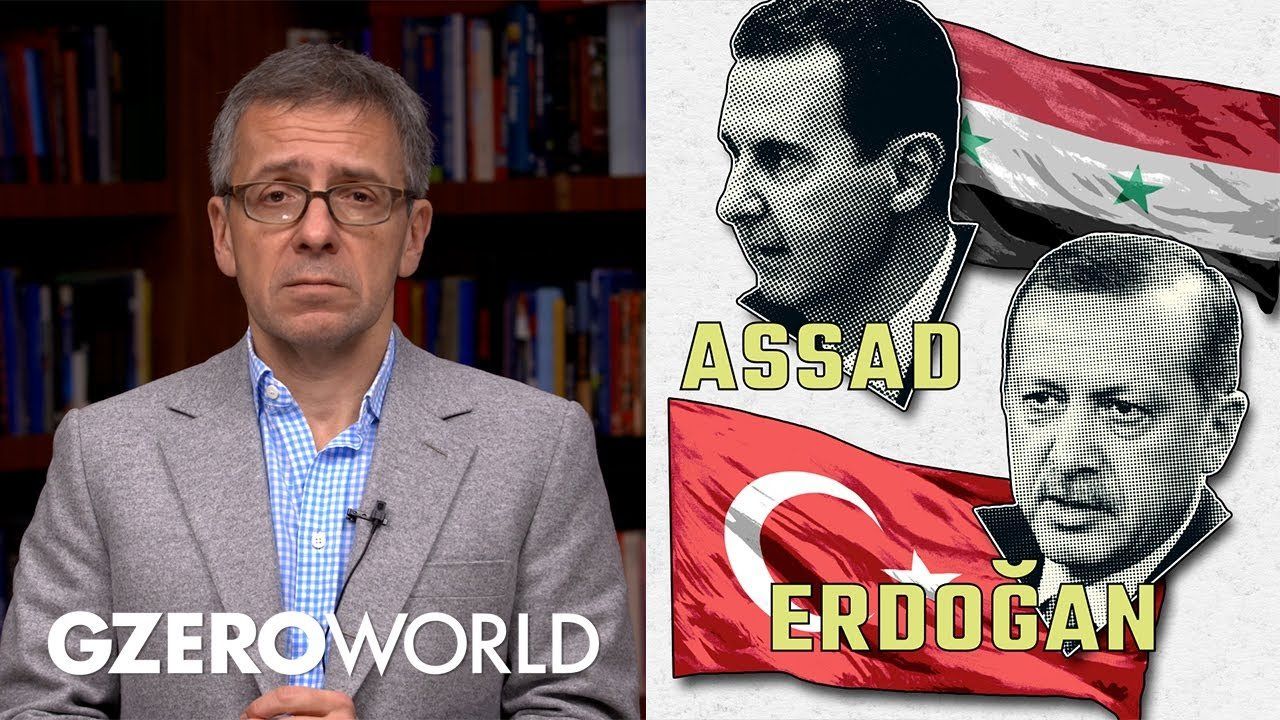GZERO World Clips
Ian Explains: Earthquakes compound political turmoil in Turkey and Syria

Ian Explains: earthquakes compound political turmoil in Turkey and Syria | GZERO World

A 7.8 magnitude earthquake hit Turkey and Syria on February 6th, followed by a 7.5 magnitude quake shortly after, causing widespread devastation and over 50,000 death in Turkey and Syria. The disaster is compounded by multiple crises in the region, including the Syrian civil war, the refugee crisis, and financial turmoil in both countries, Ian Bremmer explains on GZERO World.
The earthquake also highlighted the complicated relationships between the countries' leaders, Syrian President Bashar al-Assad and Turkish President Recep Tayyip Erdoğan, and the rest of the world.
Syria is still devastated by a over a decade of civil war, a conflict that’s killed hundreds of thousands of people, displaced millions, and decimated northwest Syria, where the earthquakes struck. Western leaders wary of sending aid directly to Assad's government, which has a history of withholding assistance from citizens in rebel-controlled areas.
Erdoğan is navigating a difficult political environment ahead of the general election in May, trying to avoid the pitfalls of his predecessor, who was booted from office two decades ago in large part because of his mismanagement of another earthquake that killed over 17,000 people.
The main challenge now is to expand the flow of aid to the people in Turkey and Syria who still desperately need it, while ensuring that the help continues to flow long after the news crews leave.
People in support of former South Korean President Yoon Suk Yeol rally near Seoul Central District Court in Seoul on Feb. 19, 2026. The court sentenced him to life imprisonment the same day for leading an insurrection with his short-lived declaration of martial law in December 2024.
65: The age of former South Korean President Yoon Suk Yeol, who was sentenced to life in prison on Thursday after being found guilty of plotting an insurrection when he declared martial law in 2024.
In an era when geopolitics can feel overwhelming and remote, sometimes the best messengers are made of felt and foam.
The Hungarian election is off to the races, and nationalist Prime Minister Viktor Orbán is facing his most serious challenger in 16 years.
Does skepticism rule the day in politics? Public opinion data collected as part of the Munich Security Conference’s annual report found that large shares of respondents in G7 and several BRICS countries believed their governments’ policies would leave future generations worse off.